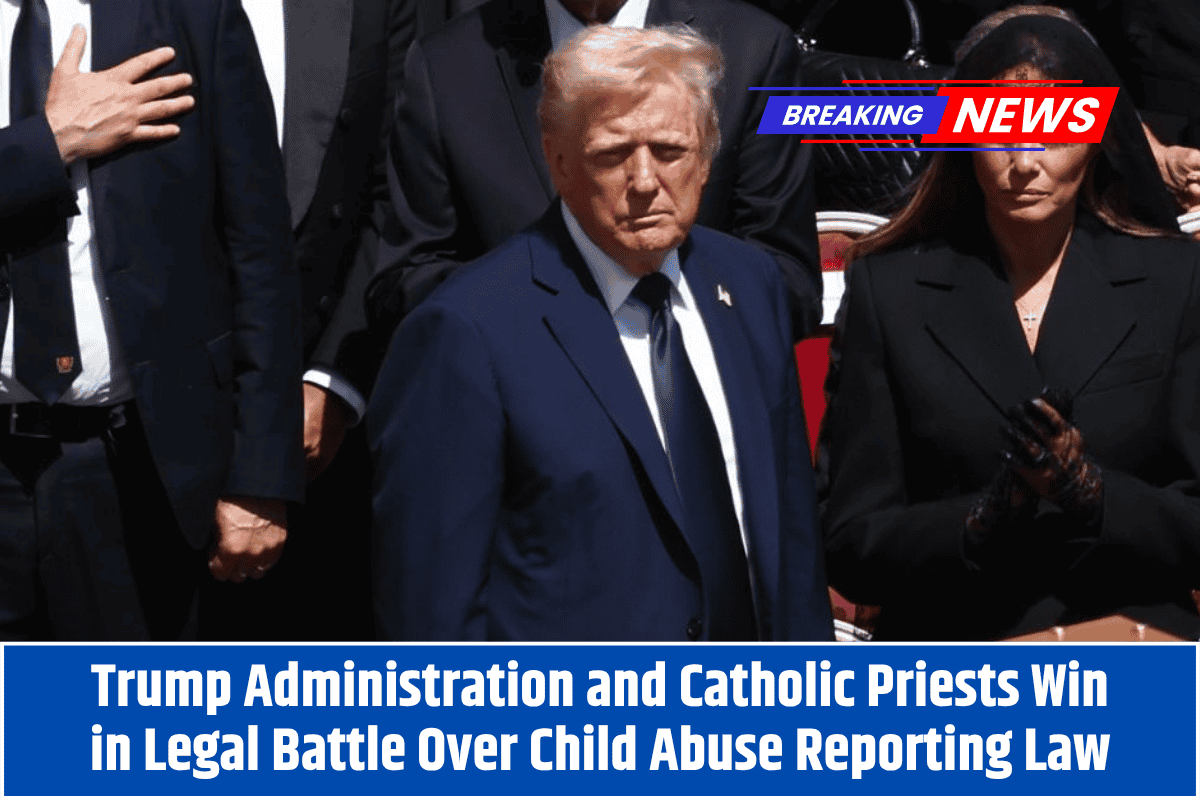In a significant legal victory, the Trump administration, along with Catholic priests, successfully challenged a new Washington state law that would have required clergy members to report suspected child abuse or neglect, even if they learned about it during confession.
This legal battle centered around the potential violation of the confidentiality of the confessional, a cornerstone of Catholic religious practice.
The Washington State Law
The law in question, Senate Bill 5375 (SB 5375), was passed in Washington state earlier this year and was set to go into effect on July 27. It mandates that any member of the clergy who has reasonable cause to believe that a child has suffered abuse or neglect must report it to the proper authorities.
The law aimed to expand mandatory reporting laws, which already apply to professionals like social workers, teachers, and healthcare providers.
However, the law caused concern within religious communities, particularly the Catholic Church, as it would require priests to break the confidentiality of the confessional. The Roman Catholic Church holds the practice of confidentiality in the confessional as sacred, and breaking this seal can lead to serious consequences, including excommunication.
The Court’s Ruling
U.S. District Judge David G. Estudillo, appointed by President Joe Biden, temporarily blocked the enforcement of SB 5375 in a 25-page order issued recently. Judge Estudillo’s decision grants a preliminary injunction, which means that the law will not go into effect for clergy members, at least for now.
The plaintiffs, led by Archbishop Paul D. Etienne of the Archdiocese of Seattle, argued that the law violated the First Amendment, which guarantees the free exercise of religion.
The judge agreed with the plaintiffs, stating that the law would burden their ability to practice their religion freely. In particular, the law put priests in a difficult position where they would have to choose between following the law and risking criminal sanctions or following their religious duties and potentially violating the sacrosanct nature of the confessional.
The Legal Arguments
The plaintiffs’ primary argument was that the law infringed upon their First Amendment rights, particularly the free exercise of religion. They contended that priests could not be forced to break the confidentiality of confession, as doing so would violate their religious beliefs and risk automatic excommunication.
Judge Estudillo found this argument compelling, noting that the law “affirmatively compels” priests to act in ways that go against their religious principles.
Additionally, the judge noted that the law was not neutral in its application. While it required clergy to report suspected abuse, other groups, such as parents and caregivers, were not subject to the same requirement. This distinction led the judge to conclude that the law unfairly targeted clergy and violated their religious freedom.
Clergy Specifically Targeted
One of the key points of contention was that SB 5375 explicitly singled out clergy members in the law. The bill included a provision that removed the privilege of confidentiality for clergy members when it came to child abuse reports, while allowing similar privileges for other professionals like attorneys and healthcare workers.
This distinction raised concerns that the law was designed to specifically undermine the religious practice of the confessional.
Judge Estudillo pointed out that the legislature’s intent appeared to be focused on undermining the religious practice, citing comments from lawmakers critical of religious communities for allegedly covering up child abuse. The judge noted that this kind of targeted action raised constitutional concerns, as it seemed to specifically target a deeply-held religious practice.
Constitutional Scrutiny and Final Decision
In his ruling, Judge Estudillo subjected SB 5375 to “strict scrutiny,” the highest level of judicial review used when laws potentially violate fundamental rights, like the First Amendment. Under strict scrutiny, the government must show that the law is narrowly tailored to serve a compelling state interest.
The court found that Washington state failed to meet this standard. While the state’s interest in protecting children from abuse is undeniably important, the judge concluded that the law’s approach was too broad and did not provide sufficient protection for religious freedoms.
As a result, the judge ruled that the law could not be enforced against the clergy, at least for the time being. This temporary victory for the plaintiffs has halted the law’s implementation, but the case is far from over. The ruling is only a preliminary injunction, meaning the court will continue to evaluate the constitutionality of the law in the coming months.
The legal battle over SB 5375 highlights the ongoing tension between religious freedoms and state interests in child protection. The ruling in favor of the plaintiffs emphasizes the importance of maintaining religious protections, especially when it comes to practices like the confessional, which hold deep spiritual significance for many faith communities.
While this ruling is a temporary victory, it sets the stage for continued debates over how to balance the rights of individuals with the need for state intervention in cases of abuse.






